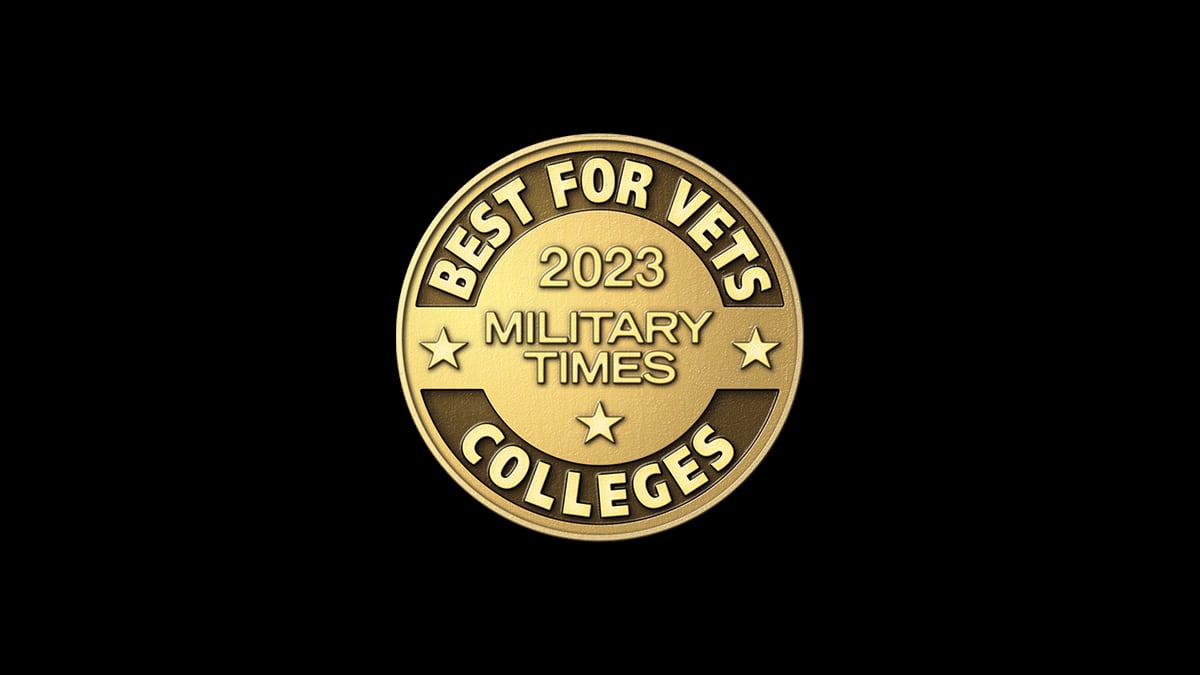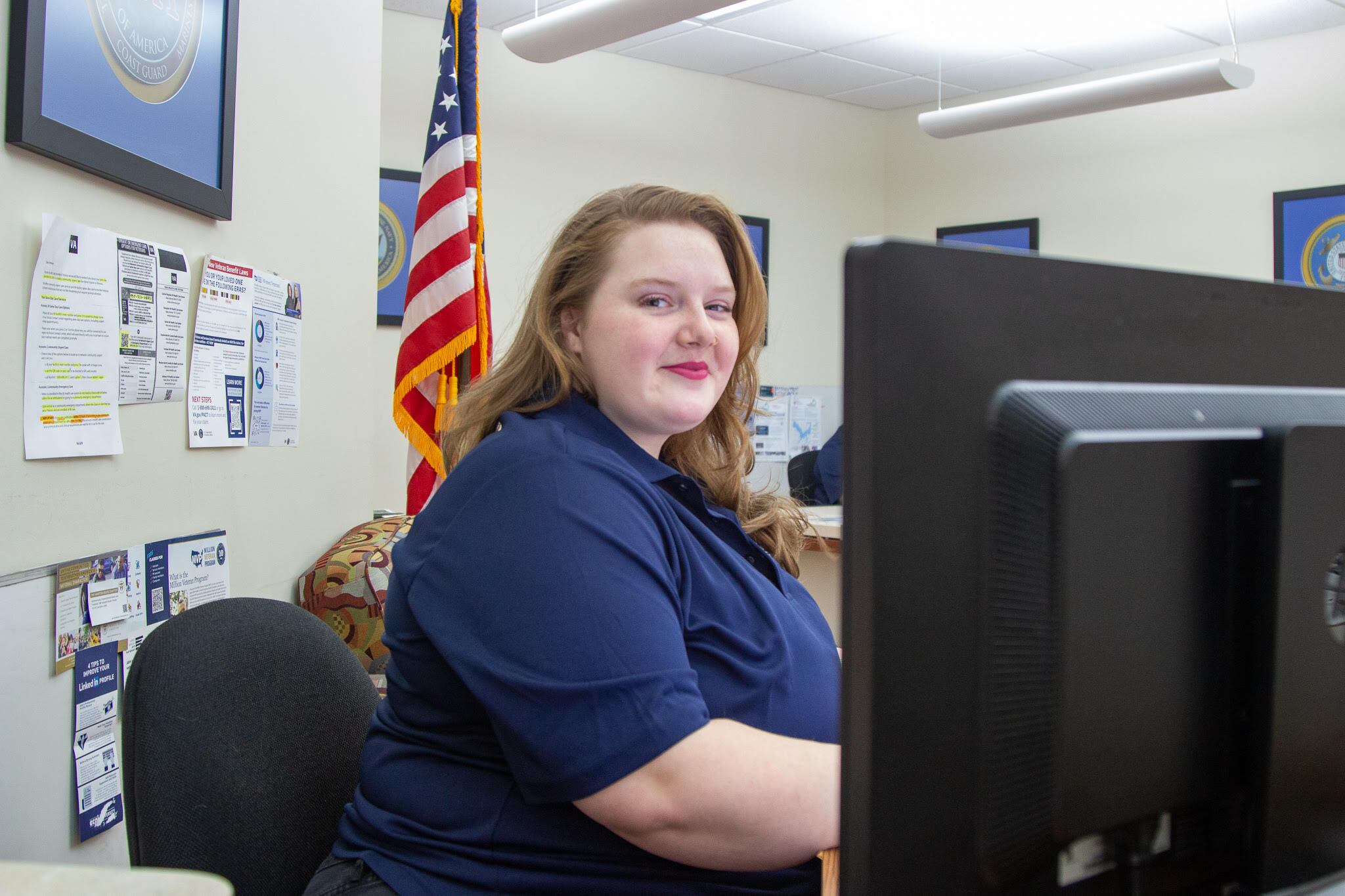When Madelyn Coppick separated from the Navy in 2020, she had two tours under her belt, including one in Bahrain. The operations specialist loved the routine in the military and excelled in her career serving on a special maritime patrol task force and working reconnaissance aircraft.
But when the five-year veteran entered civilian life and turned her sights towards higher education, she felt lost.
“Most veterans spend years giving their all to the military careers, but when it’s time to separate they get a week of separation counseling and then are left to figure everything out on their own,” said Coppick, who found much-needed support at the private ECPI University in Virginia Beach, where she’s earning a bachelor’s degree in cybersecurity.
At ECPI, Coppick discovered camaraderie at the Student Veterans of America Club, relished in the year-round class schedule that allowed her to maintain a military-like routine, and got priceless assistance from specially trained university staff who helped her navigate complex GI Bill benefits.
“Being surrounded by veterans who understand each other and are willing to help each other academically as well as personally has been an absolute blessing,” she said.
ECPI is just one of the colleges and universities that offers resources tailored to fit the needs of veterans, reflected in the 2023 Military Times Best for Vets Colleges rankings, where ECPI finished in 21st place. The rankings evaluate higher education institutions on their programs, training and support infrastructure for veterans, who often face challenges that are significantly different from civilian students.
In San Antonio, No. 1 ranked University of the Incarnate Word’s Military and Veteran Center provides annual training and guidance to staff, faculty and students with a “Military 101″ course. Similar training is offered at No. 2 University of Texas at Arlington, where the Department of Military and Veteran Services hosts cultural competency training called “Serving Those Who Served.” Tenth-ranked California State University-San Bernardino offers employee training focused on military-related disabilities.
UTA’s Molly Albart said the “Serving Those Who Served” course helped her do better as assistant vice president for student transition and success.
MILITARY TIMES’ 2023 BEST FOR VETS: COLLEGES RANKINGS
“Not having been in the military myself, it was helpful to know some of the challenges related to mental health, family, stressors and acclimating to civilian life,” Albart said. “I feel better prepared to support the veterans I encounter in my work.”
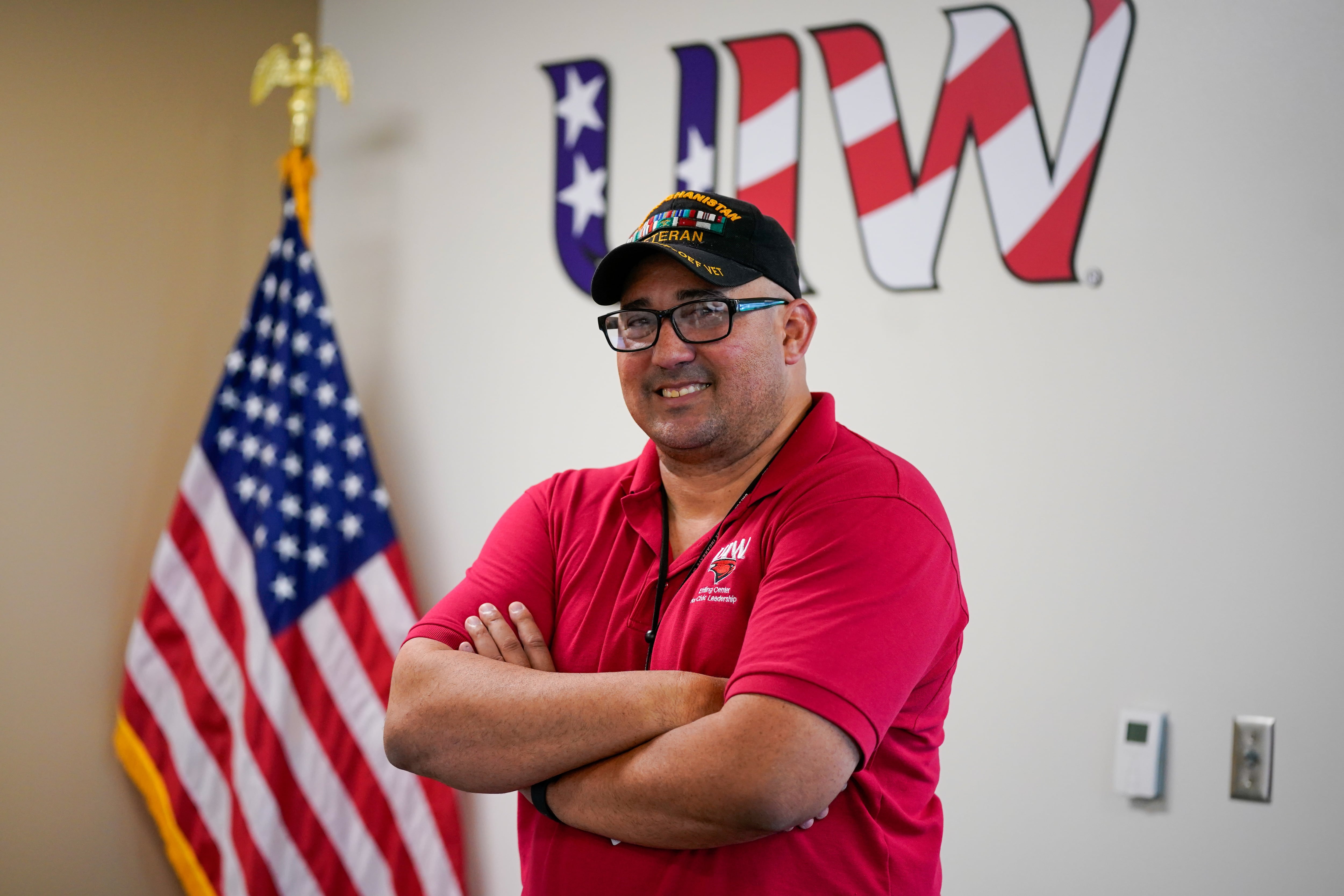
A focus on training
At No. 1 Incarnate Word, staff training and efforts like the Military Strategic Priority Committee are especially important as the number of military-connected students grows — currently 21 percent of all students, said Jonathan Lovejoy, senior director for military and veteran affairs.
“We make a concerted effort every day to make sure our veterans and their families feel welcome and supported,” he said.
Belinda Guerra, a petty officer in the Navy Reserve who served five years on active duty, is pursuing a nursing degree at Incarnate Word. She says the support veterans get from understanding university staff allow her to stay dedicated to both her service and her studies.
“Being here at UIW is a literal dream come true for me,” said Guerra, a first-generation college student. “The Military and Veteran Center here at UIW has made the transition from service member to student incredibly easy with their resources and knowledge. They provide a warm environment to all the veterans attending which creates an amazing support system and friends, just like the military did.”
Incarnate Word’s “Military 101″ course material is provided to all faculty and staff, giving them a basic overview of military branches, culture and transition to civilian life. Those who complete the course receive a sticker for their door or bulletin board and an “Honoring All Who Served” plaque for display. Even part-time instructors receive training, including how to help veteran students handle unexpected circumstances.
Incarnate Word’s rankings were boosted by adding a Space Force ROTC program as well as maintaining robust veteran services and mental health services for military students.
The university makes it a priority to make sure all staff understand military policies, which are listed on the school’s websites, in the catalog and syllabi. Reminders about best practices when working with military-connected students are sent regularly.
UTA grad Sawyer Howard is an Air Force veteran hired this spring as a coordinator by the university’s Office of Military and Veteran Services. He said his experience — first as a veteran student and then as an employee going through the specialized training to help fellow vets attending college — has given him a unique perspective.
“The most gratifying part of the job is hearing someone sigh in relief knowing they’ll have what they need to make it through the semester,” Howard said, adding that veteran students often send thank you notes for help navigating stressful or unique situations.
“It’s not something you do to be thanked, but the thanks are a very welcome reminder that we’re truly helping people,” Howard said.
Agustin Ramirez, director of the Veterans Success Center at California State University-San Bernardino, said the staff training programs there, particularly for nonmilitary folks, have made a world of difference.
Ramirez pointed to a “very generous” leave of absence policy crafted by the dean of social and behavioral sciences after attending a training as just one example.
“I enjoy having staff approach me after training and explain that they feel less overwhelmed by, more welcoming of and more comfortable with the military-affiliated student population and benefits. I especially love when they say something like, ‘I just didn’t know, and now I do.’ Those moments make me appreciate the work we do,” he said.
Besides “Military 101,” the California university offers training focused specifically on financial aid for military families. The Veterans Success Center also presents at the annual Student DisABILITY Awareness Fair, where staff talk about the most common disabilities associated with military service: tinnitus, sciatica, migraines, mental health, back pain and prosthetic limbs to name a few.
“It uncovers, demystifies. It urges cultural awareness, creates empathy and encourages dialogue,” Ramirez said. “Most importantly, it humanizes our service members and their families, and promotes an understanding of their sacrifices and contributions to our nation and our society.”
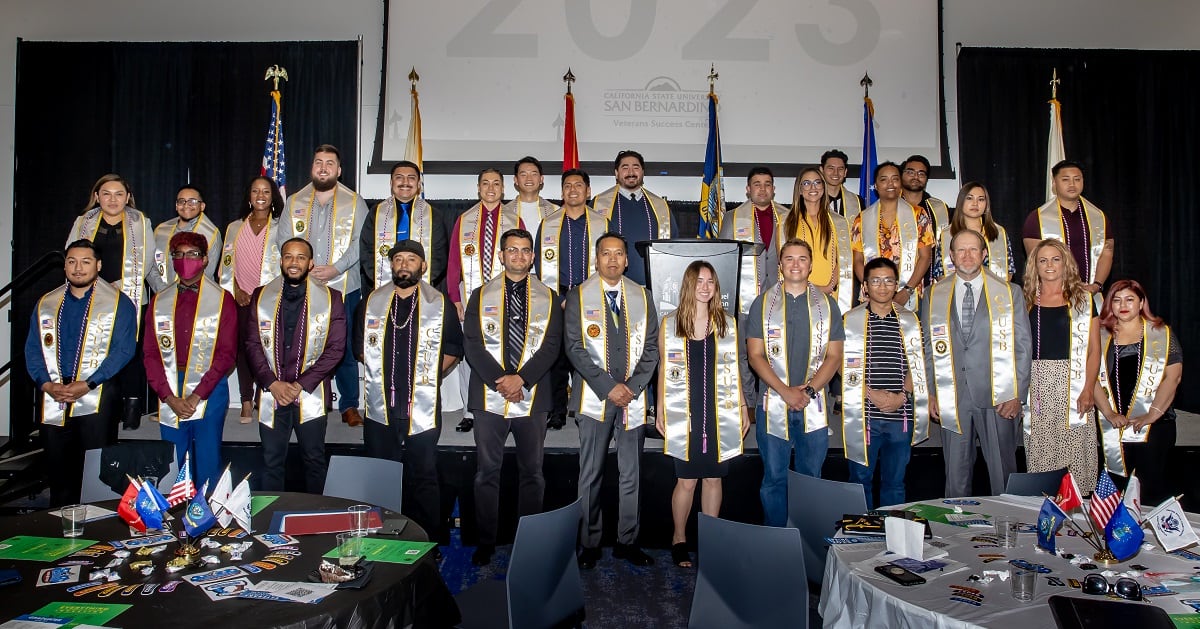
Meeting veterans’ needs
Coppick, the cybersecurity student at ECPI, said the staff training has paid off in unexpected ways for her. She never expected to be able to use GI benefits for an advanced degree, but plans to pursue a master’s in business administration.
“I would not have been aware of the extra resources available to me had it not been for the amazing support and expertise of the ECPI staff,” she said.
The schools that dominate the list had the staff training programs in common.
But they also support veterans as they transition from the military to college life, offering veteran-specific orientations, providing veteran-specific mentoring, veteran-specific financial aid offices, advocacy programs and help navigating into full-time careers.
Coppick finds these things invaluable.
“This is essential to the veteran community. When we separate from the military, many of us struggle to adjust to civilian culture.
A community of like-minded veterans who can empathize with both the highs and the lows of the transition experience really makes the adjustment easier,” she said.
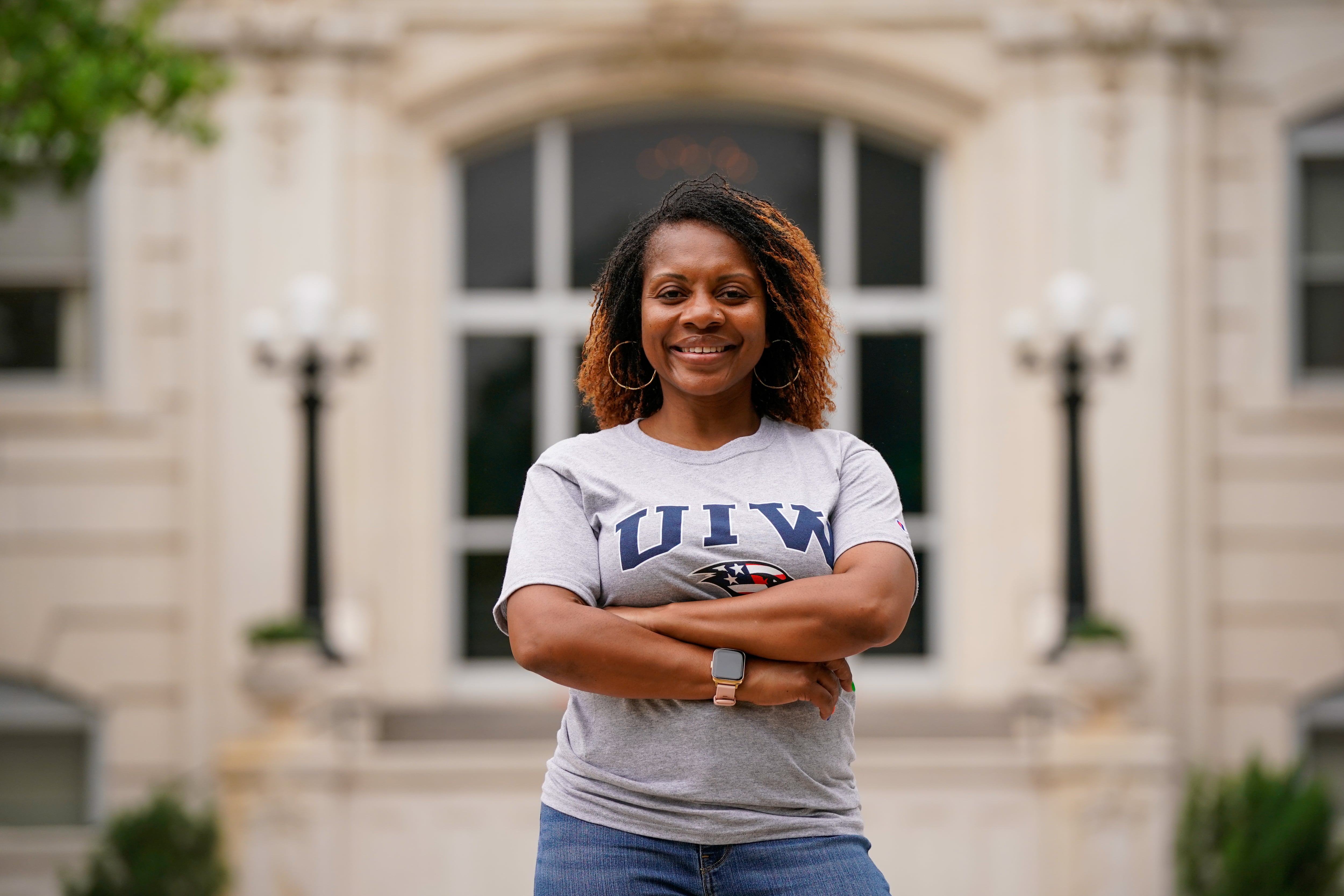
‘The best job’
Bill Brown, executive director of military education at ECPI, said he has “the best job in the world, working with and helping our military and veteran students.”
He still stays in touch with a graduate who struggled as a student with the effects of a service-related head injury, which caused him to miss classes and assignments.
“There were times he ended up in the hospital or just could not focus,” said Brown.
He recalled how he personally talked the student through the situation and how the university made accommodations. The vet eventually graduated at the top of his class and is working at a cybersecurity job he loves.
“Knowing that just spending some time talking and helping a student makes such a difference, it means a lot,” Brown said. “Sometimes our military and veteran students just need to know that there is someone there for them that understands what they have been through.”
— Hilary Niles compiled all survey results and charts. She also contributed to the story.
